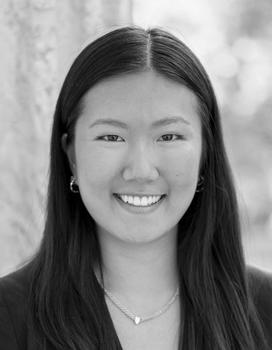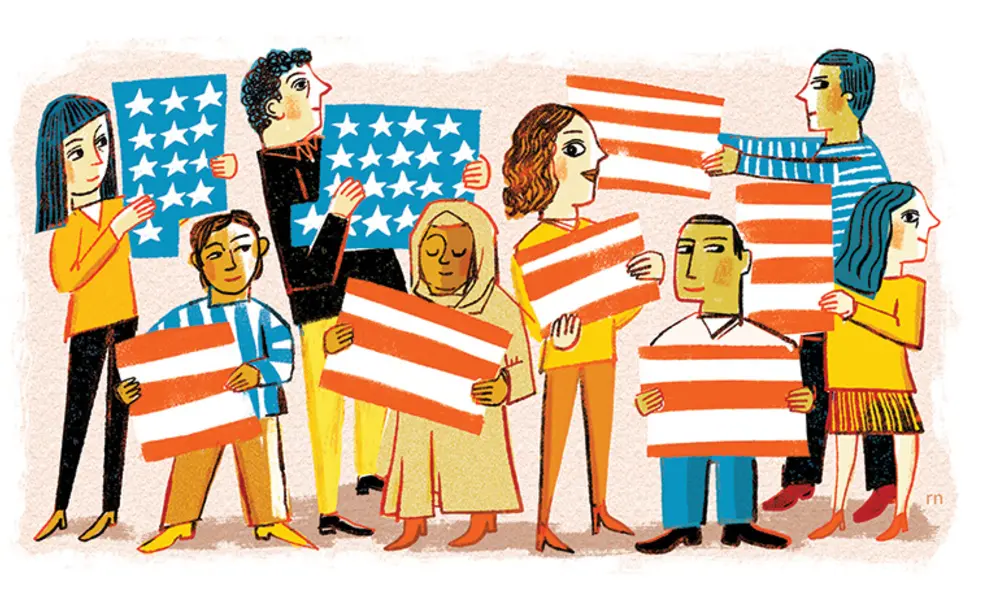In Asian American Studies, Students Find Identity
‘In a constantly growing Asian America ... there are untold stories of fear, joy, and vibrancy’

As someone who grew up in an environment of cultural dissonance, where the “Korean” and “American” in my identity often felt pitted against each other, I came to Princeton eager to learn about the histories informing my identity. Through the Program in Asian American Studies, I was able to explore the legal and literary histories underlying the “model minority” stereotype, the political and cultural contexts that have shaped the immigration of Asians to the United States, and how contemporary artists have depicted Asian American and Pacific Islander experiences.
For the first time, I was studying the laws that brought my grandparents to the United States and shape the experiences of my family. I was able to confront my identity beyond Hollywood representation and my own lived experiences, and I became proud of embodying the same dissonances I once was unable to articulate.
Professor Paul Nadal, who taught two of my Asian American studies courses, said he had a similar experience as a student at the University of California, Berkeley, where he earned his Ph.D. in rhetoric. “Taking Asian American studies classes was this moment of awakening in terms of who I am,” Nadal said. “It also provided a kind of map for how to navigate the world.”
Princeton’s Asian American studies certificate program was established in 2018 — a result of decades of campaigning by students, alumni, faculty, and staff — and has continued to expand and evolve. This semester, four courses list Asian American studies as their primary designation and three include it as a secondary one. Course subjects include psychological explorations of Asian American mental health, the study of Asian Pacific American literature and film, and the historical analysis of Asian American gender and sexuality. Four students received the Asian American studies certificate at Commencement last year.
Tanzila Morshed ’23, a computer science major and Asian American studies certificate student, described the program’s importance for her. “I didn’t have to be South Asian and American,” Morshed said. “There is nuance through being both and that’s an entirely different entity in itself, and that’s something I did not recognize or realize.” Morshed completed her senior thesis on how anti-Asian hate before, during, and after the COVID-19 pandemic has changed the public opinions of members of Congress.
The program remains small, which has limited the diversity of its faculty and curricula. According to Nadal, he is the only full-time professor whose hire was formally affiliated with the Asian American studies program — the program’s other associated faculty members were appointed by other departments. Morshed, who remarked on how “Asian American” is often viewed as East Asian-centric, called for a deeper dive into more ethnic backgrounds.
Lecturer Rishi Guné said that many people still view ethnic studies as separate from the rest of the University. “I think we can reshift that perspective to think about ethnic studies as a space that needs institutional funding, institutional backing, and departmentalization,” Guné said, “to provide students with this type of intellectual space to ask questions that reshape how people engage with other disciplines.”
Professor Anne Cheng ’85, who helped advocate for Asian American studies before its establishment, said that she was “pretty optimistic” about the future of the program. “If we have enough faculty and student interest,” Cheng said, “we could absolutely become a department in its own right, instead of being a program [within] American studies.”
For now, certificate students major in other departments. As a student in the Princeton School of Public and International Affairs, Asian American studies courses have informed my engagement with public policy. I wrote my senior thesis on what it means to be Asian American in New York City, analyzing how diverse forms of political engagement, racial identity, and community advocacy among Asian American New Yorkers can inform policymakers to both disaggregate and unify Asian America.
In a constantly growing Asian America, with increasingly diverse arrays of ethnicity, citizenship, and immigration history, there are untold stories of fear, joy, and vibrancy — stories that can be told more faithfully with the critical interdisciplinary work of Asian American studies.










No responses yet